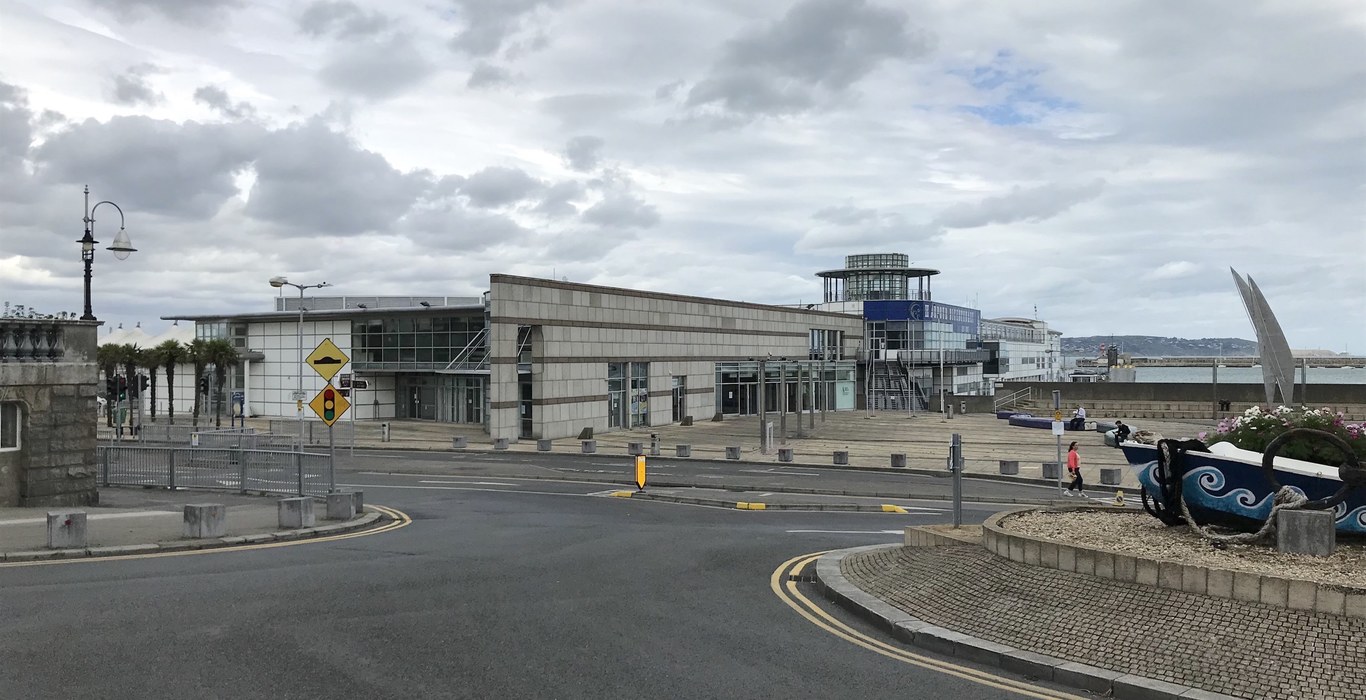These emails reveal the inside story of how Dún Laoghaire's innovation hub plan fell apart
The project was abruptly axed in October amid claims that a vital licence hadn’t been secured.
A DAY AFTER the plug was pulled on a planned tech hub in Dún Laoghaire, the local council was told that vital information relating to the project was being withheld from its developer by the building’s owner.
During the summer, Harbour Innovation Campus Limited received planning permission to build a 7,000 sq m digital hub in an old ferry terminal building in Dún Laoghaire.
The owner of the building is Dún Laoghaire Harbour Company (DLHC), a State-owned body that moved under the control of the local council at the beginning of October.
Seven weeks after planning clearance was secured, the plan was suddenly abandoned by its main proponent, Philip Gannon.
As revealed by Fora at the time of the announcement, Gannon and the council were at odds over why the project was cancelled.
Gannon claimed on 30 October that the building’s owner did not have the necessary foreshore licence for the development.
However, the council said this licence was granted “in principle” by the Department of Housing, Planning and Local Government on 1 October.
In correspondence with Dún Laoghaire-Rathdown County Council chief executive Philomena Poole, released to Fora under freedom of information laws, Gannon claimed information about the foreshore licence was withheld from him by the harbour company.
 Artist's impression of the hub's interior
Artist's impression of the hub's interior
Gannon asked harbour operations manager Tim Ryan for clarification about the foreshore licence on 19 October and was told four days later to deal directly with harbour boss Gerry Dunne about the matter.
On that same day Gannon was told: “Please note that we are very confident of obtaining a foreshore licence. We are prioritising this matter and will let you know as soon as we hear the definitive news.”
In an earlier email from Ryan, dated 11 October, Gannon was advised: “I’m working on (the licence). Please bear with me for a little while, it’s been slightly completed by the (transfer of the harbour company to the council).”
Gannon told Poole that the harbour company did not tell him “anything at all about” approval in principle of the foreshore application at the start of October.
“For whatever reasons, seven weeks after planning permission was granted, DLHC chose not to provide me with adequate information in relation to the status of the foreshore application,” he wrote.
“The situation got so bad that I ended up calling the Department of Housing, Planning and (Local Government) myself on Friday 26th October to try to find out what was going on. (They) told me that ‘(they) could not access the file’.”
Gannon added that the “huge amount of uncertainty” around the foreshore licence meant he had to abandon the plan.
“I had to concede that commencing the fit out on the planned date of 7th January was highly unlikely. At that point I felt I had no option but to abandon the project in Dun Laoghaire, after 23 months of very hard work.
“Anybody in my position would have done exactly the same. Nobody could have tried harder than I did to make this project a success, under very difficult circumstances.”
Fora contacted the council for comment on Gannon’s claims that information was withheld by the harbour company. A spokeswoman for the local authority said it has “no comment to make on the contents of (the) correspondence”.
Several emails between Gannon and the local authority after he made the decision to pull the plug on the tech hub project were not released to Fora on the grounds of commercial sensitivity.
 Philip Gannon
Philip Gannon
‘No Tech Hub’
The plan to scrap the south Dublin tech hub was made public on 30 October, however an email shared by harbour chief Dunne showed that Gannon contacted several Irish maritime groups a day earlier to inform them of the news.
In an email entitled “No Tech Hub for Dun Laoghaire”, Gannon thanked the groups and select individuals for their help with his project.
He said it took nine months to find a suitable fit-out team who would transform the former ferry terminal into an office space.
“When I told them that work could not commence until a foreshore licence was granted, they told me they don’t do ‘stand-by’ and would be starting on another project in the new year instead.”
Gannon added that due to the need to spend “months pulling together another fit-out team”, coupled with the “uncertainty” surrounding the foreshore license and a potential opening date towards the end of 2019, he felt he “had no option but to terminate the lease and find an alternative property elsewhere”.
New plan
The old ferry terminal building in Dún Laoghaire has been empty since Stena Line ended services from the location in 2015.
According to Gannon, the Harbour Innovation Campus would have housed 1,000 workers in the terminal and brought an additional €6 million annually to the area.
Gannon, the owner of private equity investment firm Blond Capital, previously told Fora he is now scoping out new locations for his tech hub.
According to emails released, he has also contacted the council about getting his security deposit for the old terminal building refunded.
The Sunday Business Post previously reported that entrepreneur Emmet O’Neill was backing a plan to reignite the possibility of turning the harbour facility into a tech hub. He reportedly wrote to the council with an offer to acquire the building.
Ian Lucey, Gannon’s former partner in the Harbour Innovation Campus project, has also expressed an interest in taking on the project. He told Fora that he had secured €8 million in financial backing to get the office open by next summer.
Meanwhile, in mid-November Gannon initiated High Court proceedings against Lucey in relation to the abandoned project.
It is understood the case centres on a financial dispute over money Gannon paid Lucey for his shares in the Harbour Innovation Campus company.





